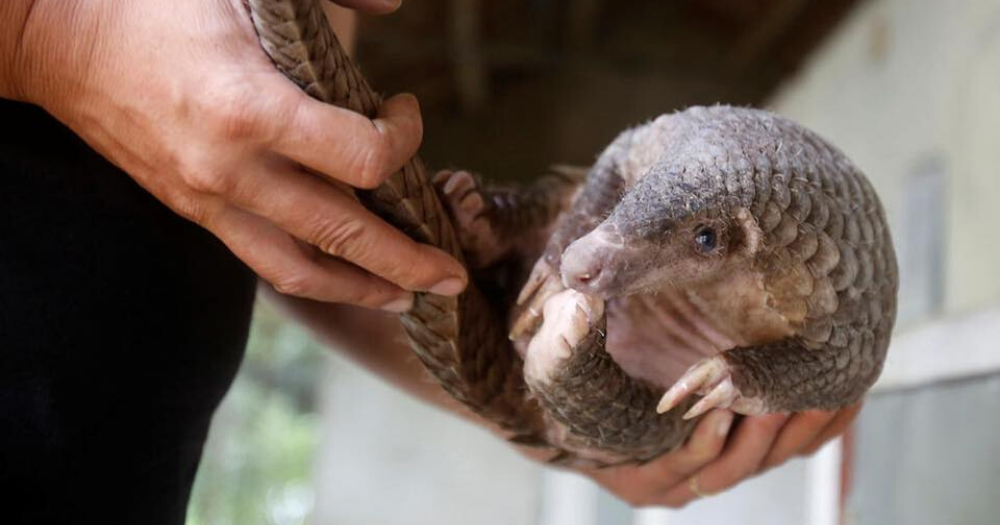Singapore is a bustling hub for trade, and that means there's a chance that wild animals are being smuggled through our ports as well.
In a parliament sitting on Feb. 18, Nee Soon GRC Member of Parliament Louis Ng broached this issue of illegal wildlife trafficking.
3 shipments of pangolin scales, 2 contained elephant ivory
Ng, who is also the founder of wildlife rescue group Acres, asked how many individuals and how many organisations have been prosecuted over shipments of elephant ivory and pangolin scales seized at Singapore's border checkpoints in 2019.
In response, Senior Parliamentary Secretary of the Ministry of National Development Sun Xueling stated that three shipments of pangolin scales had been seized last year.
Two of the shipments also contained elephant ivory.
All three were seized in Singapore, en route from Africa to Vietnam.
One of these shipments, seized in July 2019, was the largest ever seizure of elephant ivory in Singapore. The shipment contained 8,800 kg of ivory and 11,900 kg of pangolin scales, worth a total of S$66.2 million in total.
As these cases involved entities outside of Singapore, Sun shared that the National Parks Board (NParks) has been working closely with the source and destination countries.
They have also been sharing information with international organisations like the Convention on International Trade in
Endangered Species of Wild Fauna and Flora (CITES) and Interpol.
14 suspected criminals arrested
China was revealed to be the final destination for these shipments.
When working with China for these cases, 14 suspected criminals were arrested by Chinese authorities, Sun revealed.
She added that NParks will continue to assist with international investigations into these cases.
China is well-known for being a hub for illegal wildlife activity—it is not uncommon for wild animals to be consumed by locals, as they believe these animals are more nutritious.
Wild animal parts, particularly pangolin scales, are used widely in the Traditional Chinese Medicine industry.
Covid-19 was also suspected to have originated from wild animals sold illegally at a market in Wuhan.
Pangolins were possibly an intermediate host between the original Covid-19 host and humans.
Top photo from Louis Ng Kok Kwang / FB
If you like what you read, follow us on Facebook, Instagram, Twitter and Telegram to get the latest updates.
